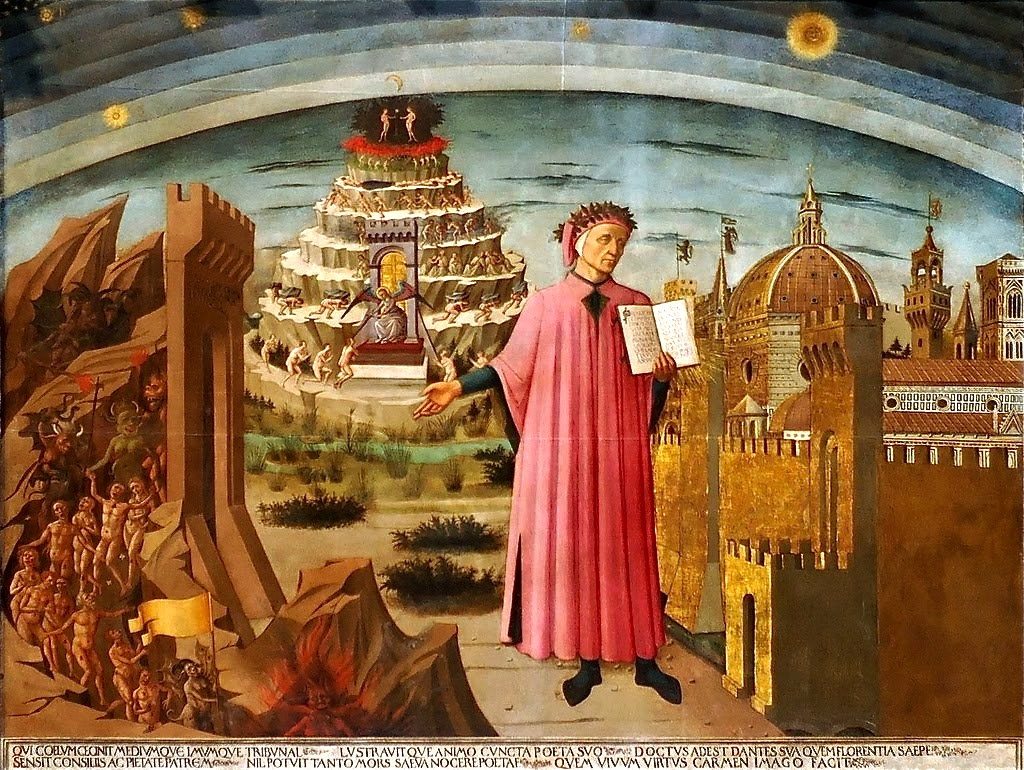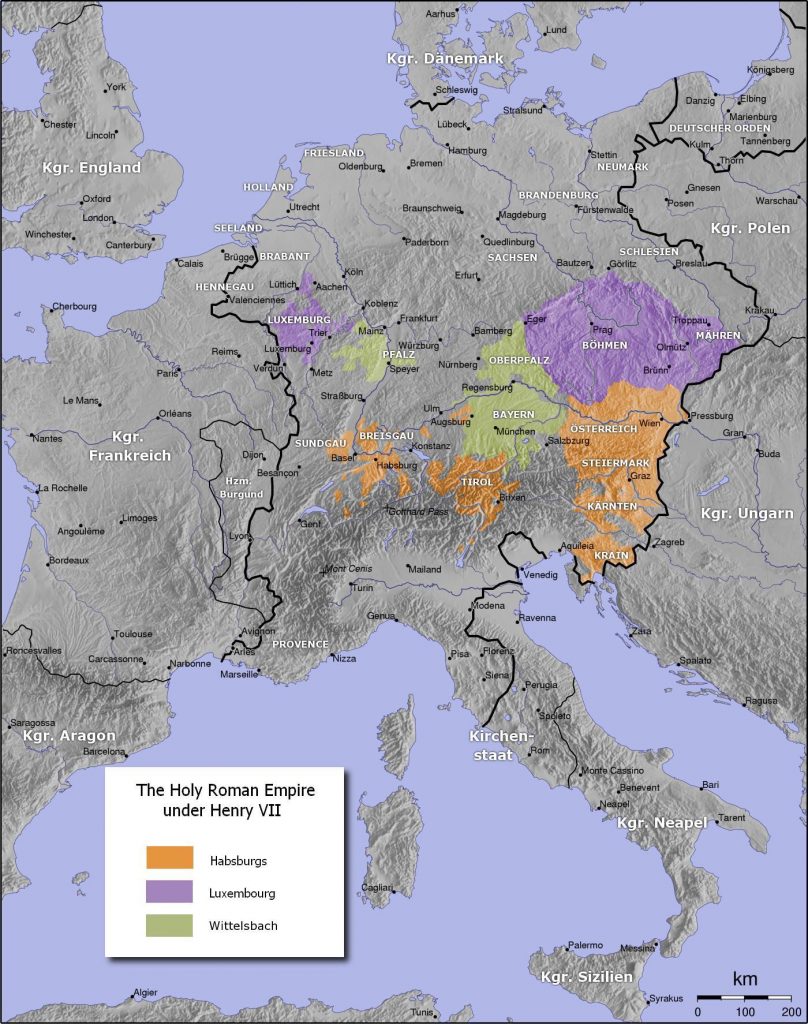WEEK 8
Henry VII (German: Heinrich; c. 1278–August 24, 1313) was the King of Germany(or Rex Romanorum) from 1308 and Holy Roman Emperor from 1312. He was the first emperor of the House of Luxembourg. During his brief career he reinvigorated the imperial cause in Italy, which was racked with the partisan struggles between the divided Guelf and Ghibelline factions, and inspired the praise of Dino Compagni and Dante Alighieri. He was the first emperor since the death of Frederick II in 1250, ending the Great Interregnum of the Holy Roman Empire; however, his premature death threatened to undo his life's work. His son, John of Bohemia, failed to be elected as his successor, and there was briefly another anti-king, Frederick the Fair contesting the rule of Louis IV. (Wikipedia)
Henry met Dante in Pisa in 1311. Dante's alto Arrigo
Henry is the famous alto Arrigo in Dante's Paradiso, in which the poet is shown the seat of honor that awaits Henry in Heaven. Henry in Paradiso xxx.137f is "He who came to reform Italy before she was ready for it". Dante also alludes to him numerous times in Purgatorio as the savior who will bring imperial rule back to Italy, and end the inappropriate temporal control of the Church. Henry VII's success in Italy was not lasting, however, and after his death the anti-imperial forces regained control.
The map below shows you the lands held by Henry VII of Luxembourg. As you can see, his family holdings were very sparse within German territories. He added Bohemia through marriage. He hoped to expand his power, by using his role as Holy Roman Emperor to go into Italy and grow his power by adding Italian cities to his empire. This brought him face to face with an implacable foe: Florence.
REQUIRED READING

Steven Ozment,
A Mighty Fortress: A New History of the German People,
Harper Perennial,
ISBN 0060934832


